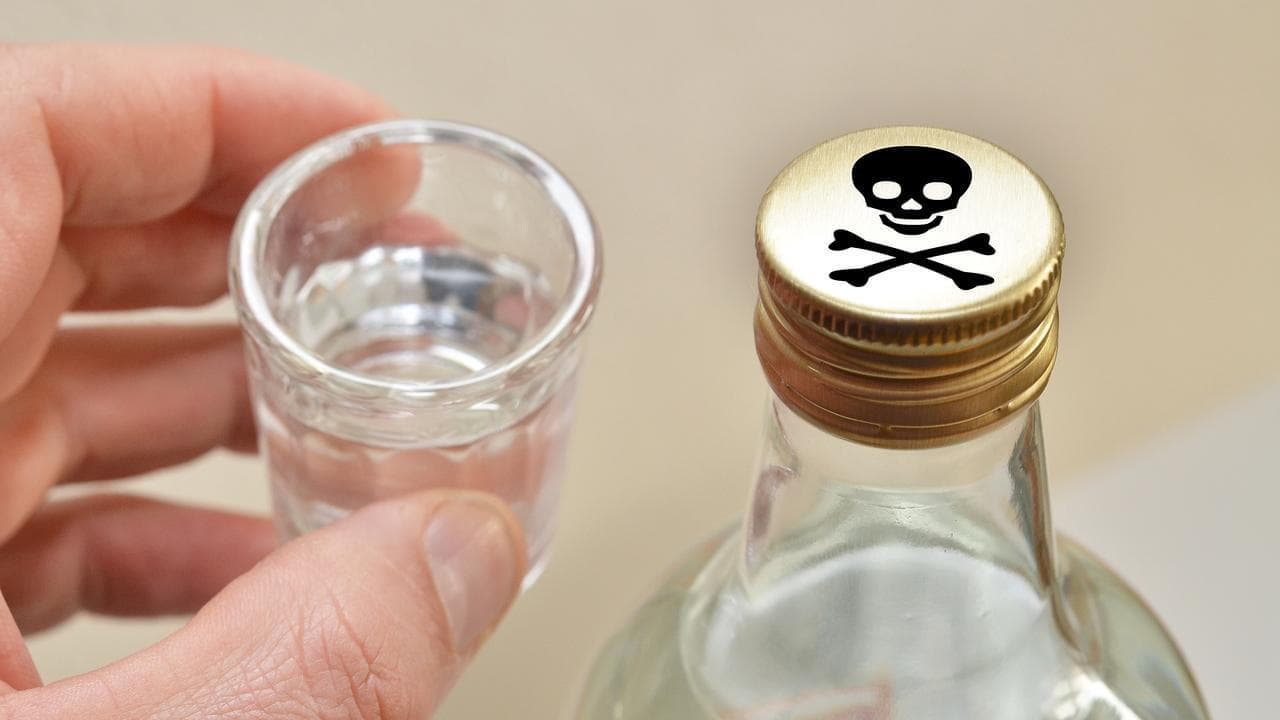WHAT WAS CLAIMED
Commercial perfumes are full of chemicals that cause cancer.
OUR VERDICT
Misleading. While they may contain some carcinogenic chemicals, the levels within perfumes are far too low to have any adverse impact on health.
An Instagram user claims perfumes are full of hormone-disrupting chemicals that cause cancer.
The claim is misleading. Experts say perfumes can contain chemicals which may be carcinogens, but people would need exposure to extraordinary amounts of the substances to have any adverse health effects.
Text on a video with the post (screenshot here) reads: "Did you know store bought designer perfumes are full of hormone disrupting chemicals that cause cancer?"
The post's caption adds: "I was never told how toxic perfumes or fragrance were & for a very long time I suffered with bad skin & ache, migraines depression, hormonal imbalances & anxiety".

However, experts told AAP FactCheck the exposure to chemicals in perfumes is well within safe limits and isn't a recognised cancer risk.
Professor Ian Olver, an oncologist and cancer researcher at the University of Adelaide, says some perfumes contain potentially cancer-causing substances, but the small quantities used negate the exposure risk.
"For some chemicals, you would have to bathe in them for long periods or ingest them before you're at risk. (There are also some components of some perfume that contain agents that may kill cancer)," Professor Olver said in an email.
"In general, although it is true there are some unhealthy chemicals in some perfumes, the exposure may be way too low to trigger cancer."
Dr Ian Musgrave, a molecular pharmacologist at the University of Adelaide, says the post's claim is "deeply misleading".
"Commercial perfumes typically contain small counts of phthalates, used as solvents or to stabilise the perfume's odour," Dr Musgrave told AAP FactCheck in an email.
Phthalates known as di(2-ethylhexyl) phthalate (DEHP) are chemicals that the International Agency for Research on Cancer (IARC) categorises as "endocrine disruptors". These are natural or artificial chemicals that mimic or interfere with hormones in the body.
Dr Musgrave pointed to an IARC study which looked at phthalates as a possible carcinogen based on animal research. However, overall results concluded no human data or research showed a clear association.
He also cited other studies - see here, here, and here - which explored whether perfume chemicals cause cancer.
"The phthalates present in perfumes are in low to trace amounts and are typically not associated with cancer. The major phthalate in perfumes, di-ethyl phthalate (DEP), has a very good safety profile," Dr Musgrave said.

Dr Musgrave echoed Prof Olver in saying vast amounts of perfume would be needed to cause any adverse effects.
"The European Commission's Scientific Committee on Consumer Products has calculated that the safety margin between the amount of phthalates people are exposed to via perfumes and any adverse effect is around a thousand fold," he said.
"Concentrations are in the range of milligrams per kilogram of perfume, people will typically apply less than a gram of perfume per day, and the phthalates present are very poorly absorbed from the skin (less than 10 per cent)," he said.
Dr Musgrave said although perfume might contain phthalates and other chemicals, the exposure was "generally recognised as well within safe limits".
Major cancer research and support organisations also say perfumes are safe to use.
Cancer Council Australia states: "There is no evidence associating the use of fragranced products with an increased risk of cancer in humans. Some fragrance ingredients have been shown to cause cancer in laboratory animals, but only at concentrations many times higher than those used in consumer products."
Similar advice is listed by Cancer Research UK.
The Verdict
The claim perfumes are full of chemicals that cause cancer is misleading. While some perfumes may contain carcinogenic chemicals, the levels are far too low to have any adverse impact on health.
Multiple studies show there is no evidence linking perfume use to cancer.
Misleading – The claim is accurate in parts but information has also been presented incorrectly, out of context or omitted.
AAP FactCheck is an accredited member of the International Fact-Checking Network. To keep up with our latest fact checks, follow us on Facebook, Twitter and Instagram.












